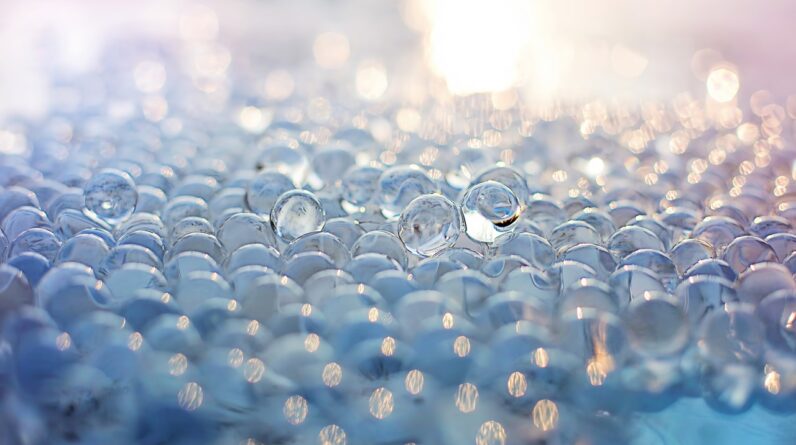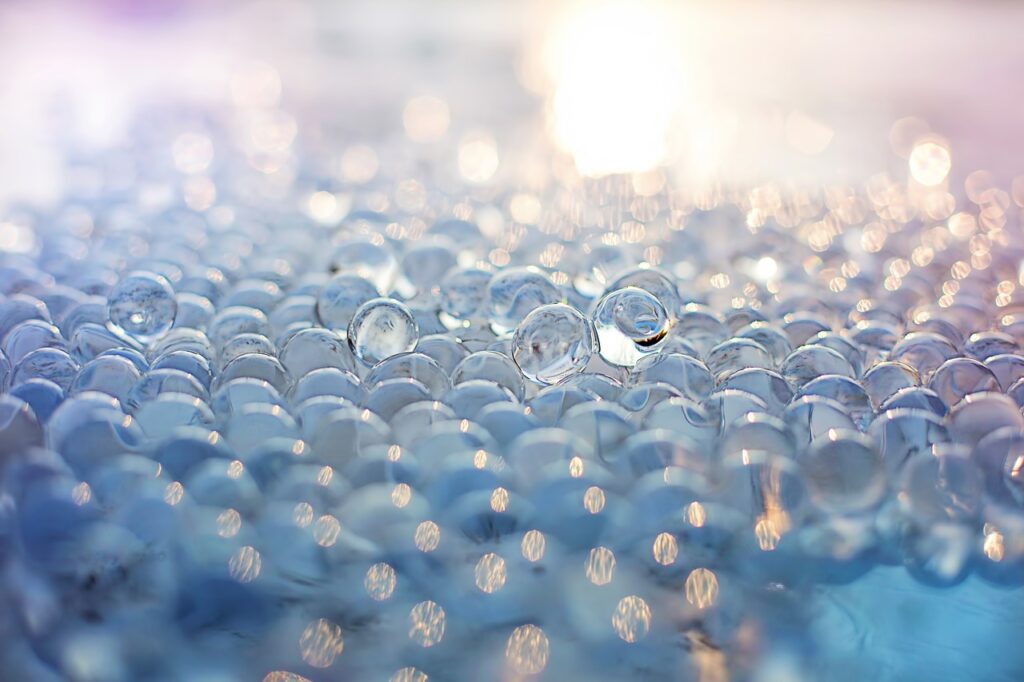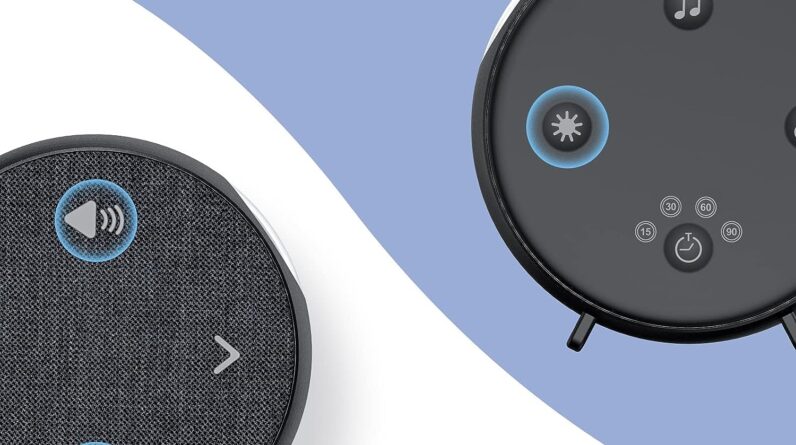
Are you struggling to fall asleep at night or find yourself waking up feeling groggy and unrested? The culprit behind your sleep woes might just be blue light exposure. In this article, we will explore the fascinating impact that blue light, emitted by our electronic devices and energy-efficient lighting, has on our sleep patterns. From disrupting our natural circadian rhythm to suppressing the production of melatonin, the hormone responsible for regulating sleep, blue light can have a profound effect on our quality of sleep. So, if you’re curious about how blue light may be affecting your sleep, read on to discover the surprising connections between screens, sleep, and our overall well-being.
Table of Contents
The Impact of Blue Light Exposure on Sleep
What is Blue Light?
Blue light is a type of visible light that is emitted by electronic devices, LED lights, and the sun. It has a short wavelength and high energy, which gives it its characteristic blue color. While exposure to natural sunlight is important for regulating our circadian rhythm, excessive exposure to blue light, especially at night, can have detrimental effects on our sleep.
The Role of Melatonin in Sleep
Melatonin is a hormone that is naturally produced by the pineal gland in the brain. It plays a crucial role in regulating the sleep-wake cycle, also known as the circadian rhythm. Melatonin levels increase in the evening, signaling to the body that it’s time to sleep. However, the production of melatonin can be disrupted by exposure to blue light.

Blue Light and Melatonin
Exposure to blue light, especially in the evening or at night, can inhibit the production of melatonin. Research has shown that blue light suppresses melatonin release, making it more difficult to fall asleep and achieve restorative sleep. This is because blue light stimulates the receptors in the eyes that regulate the body’s internal clock, sending signals that it is still daytime and not yet time for sleep.
Effects of Blue Light Exposure on Sleep Quality
Excessive exposure to blue light, particularly in the evening, can have various negative effects on sleep quality. Here are some notable impacts:
Disruption of Circadian Rhythm
Blue light exposure in the evening can disrupt the body’s natural circadian rhythm, leading to a delay in the sleep-wake cycle. This can result in difficulty falling asleep and feeling less refreshed upon waking up.
Delayed Sleep Onset
The stimulation of blue light suppresses melatonin production, causing a delay in sleep onset. This delay can be particularly significant for individuals who use electronic devices or work in environments with bright blue light in the evening or at night.
Reduced REM Sleep
REM (rapid eye movement) sleep is a crucial stage of sleep associated with memory consolidation and emotional regulation. Studies have shown that exposure to blue light at night can decrease the duration and quality of REM sleep, leading to cognitive impairments and mood disturbances.
Impact on Sleep Architecture
Sleep architecture refers to the pattern and structure of sleep stages throughout the night. Blue light exposure has been linked to alterations in sleep architecture, including reduced slow-wave sleep (deep sleep) and disruptions in the sleep cycle. These changes can compromise the overall quality of sleep.

Blue Light and Sleep Disorders
Blue light exposure has been particularly implicated in the development and exacerbation of certain sleep disorders. Here are some notable examples:
Insomnia
Insomnia is a sleep disorder characterized by difficulty falling asleep, staying asleep, or experiencing non-restorative sleep. Blue light, especially from electronic devices used close to bedtime, can contribute to the development or worsening of insomnia symptoms.
Shift Work Sleep Disorder
Shift work sleep disorder is common among individuals who work non-traditional hours, such as night shifts. Exposure to blue light during nighttime work hours can disrupt the natural sleep-wake cycle and make it challenging for individuals to achieve adequate restorative sleep during the day.
Delayed Sleep Phase Syndrome
Delayed sleep phase syndrome is a sleep disorder that is characterized by a delayed sleep-wake schedule. Individuals with this disorder have difficulty falling asleep at a socially acceptable time, often resulting in insufficient sleep. Blue light exposure, particularly in the evening, can further delay the sleep onset in individuals with this syndrome.
Blue Light Sources and Their Effects
Blue light can be emitted by various sources that we encounter in our daily lives. Here are some common sources and their potential effects on sleep:
Electronic Devices
Electronic devices such as smartphones, tablets, and computers emit blue light. Being exposed to the bright screens of these devices close to bedtime can interfere with the production of melatonin and disrupt the sleep-wake cycle.
LED Lighting
LED (light-emitting diode) lights are used in many modern energy-efficient light bulbs and fixtures. These lights emit more blue light compared to traditional incandescent bulbs. Exposure to LED lighting in the evening can suppress melatonin production and negatively impact sleep quality.
Televisions
Televisions, especially those with LED backlighting, emit blue light. Watching television before bed can delay the release of melatonin and make it harder to fall asleep. Additionally, the content itself and the level of stimulation from the program can also impact sleep.

Impact of Blue Light on Different Age Groups
The effects of blue light on sleep can vary across different age groups. Here’s a breakdown of how blue light exposure affects sleep among children and adolescents, adults, and elderly individuals:
Children and Adolescents
Children and adolescents are particularly vulnerable to the effects of blue light on sleep. Their developing eyes are more sensitive to light, and exposure to blue light from electronic devices or artificial lighting at night can disrupt their sleep patterns and contribute to sleep disturbances.
Adults
Adults may also experience challenges with sleep due to blue light exposure, especially if they engage in excessive screen time before bed. It is important for adults to be mindful of their exposure to blue light and take steps to reduce it to improve their sleep quality.
Elderly Individuals
As we age, natural changes occur in our sleep patterns, making it more difficult to achieve adequate restorative sleep. Elderly individuals are more susceptible to the effects of blue light on sleep, as their eyes may be more sensitive and their sleep-wake cycles may already be disrupted. Minimizing blue light exposure in the evening can help improve their sleep.
Protective Measures to Reduce Blue Light Effects
To mitigate the impacts of blue light on sleep, several protective measures can be implemented. Here are some effective strategies:
Blue Light Filtering Apps
Many smartphones and devices offer blue light filtering apps or settings that can be activated in the evening. These apps reduce the amount of blue light emitted by the device, making it easier for the body to wind down and prepare for sleep.
Blue Light Blocking Glasses
Blue light blocking glasses are designed to filter out blue light and protect the eyes from its harmful effects. Wearing these glasses in the evening can help block blue light from electronic devices and other sources, promoting better sleep.
Screen Time Reduction
Limiting screen time, especially in the hour or two before bedtime, can significantly reduce exposure to blue light. Engaging in relaxing activities instead, such as reading a book or taking a warm bath, can help prepare the mind and body for sleep.
Proper Sleep Hygiene
Maintaining good sleep hygiene practices is essential for optimizing sleep quality. This includes establishing a consistent sleep schedule, creating a sleep-friendly environment, avoiding stimulants close to bedtime, and engaging in relaxation techniques before sleep.
Conclusion
Blue light exposure has a significant impact on sleep quality and can contribute to the development or exacerbation of various sleep disorders. Understanding the detrimental effects of blue light is crucial for individuals of all age groups to prioritize their sleep health. By implementing protective measures, such as reducing screen time, utilizing blue light-filtering apps or glasses, and maintaining proper sleep hygiene, we can minimize the negative impact of blue light on our sleep and improve our overall well-being. Remember, a good night’s sleep is key to starting each day feeling refreshed and energized.





